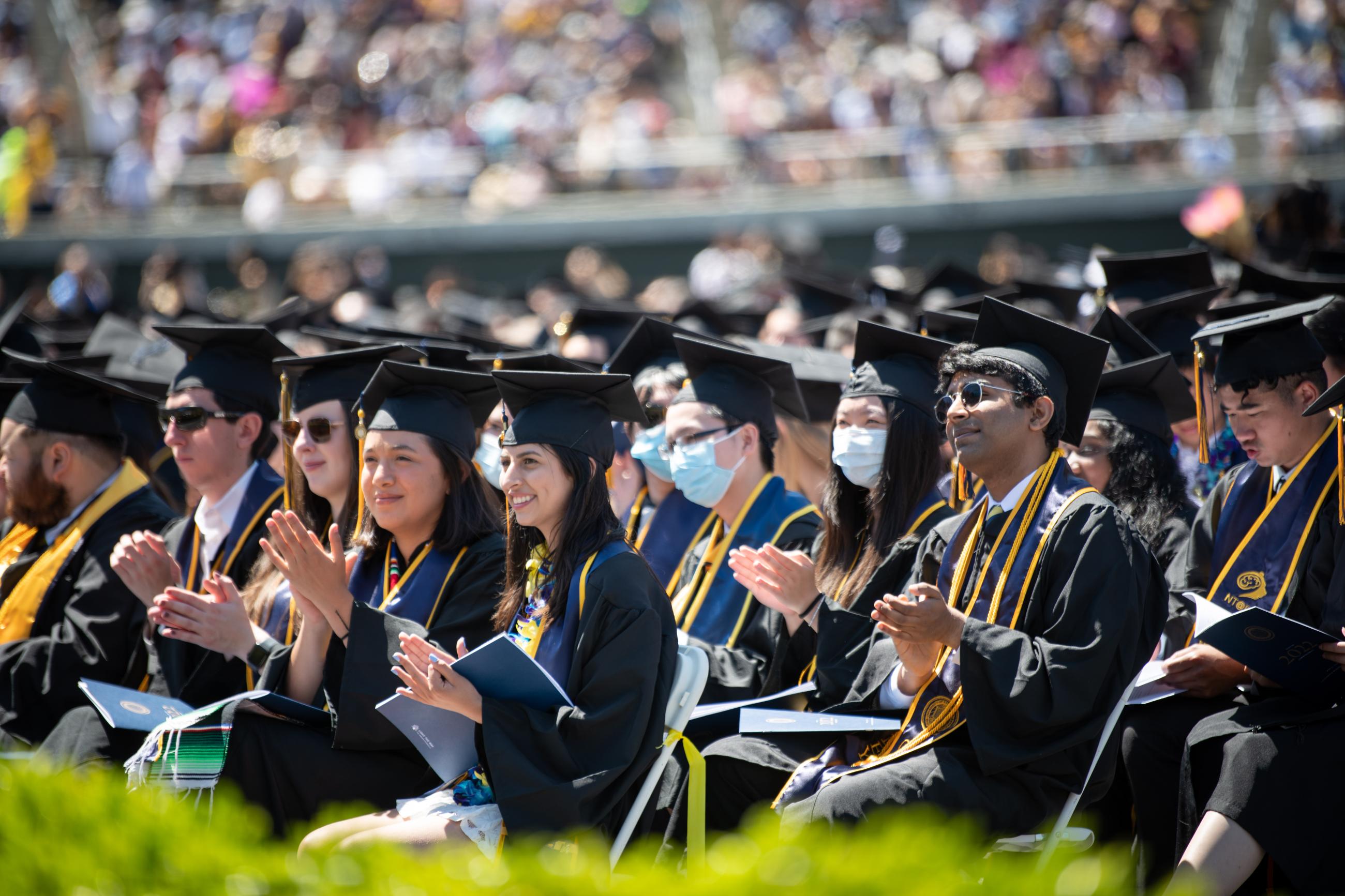
UC Berkeley’s Hearst Greek Theatre is a special place to Eric Van Dusen. It’s where he graduated from Berkeley with his Bachelor of Arts degree. It’s where his partner and friends celebrated their commencements, too.
This year, the venue will take on another kind of significance to Van Dusen, now a Berkeley data science lecturer. On May 18, he’ll watch his students who have dedicated themselves to learning and building community while enduring a once-in-a-lifetime pandemic, walk the same stage he did.
“This cohort of students has been a really resilient group that was able to carry on through so much,” said Van Dusen, outreach and technology lead for the Data Science Undergraduate Studies program, will be on stage during the Bachelor of Arts data science commencement ceremony. “I'm proud of what they have created and helped us to build.”
Van Dusen is one of many faculty and lecturers across the Division of Computing, Data Science, and Society watching their students graduate in person this week for the first time in three years. Several said they were impressed by these pupils’ strength, inspired by their success at the university and excited to see them use their skills impactfully in the professional world.
The events this week also illustrate the rapid growth of CDSS. The data science program, which now runs the fourth largest Berkeley major, is holding its largest commencement yet with 700 students expected to graduate this year. Hundreds more are graduating from CDSS affiliates, including the School of Information, the Statistics Department and the Department of Electrical Engineering and Computer Sciences.
The generation that persevered
Graduating is often a significant achievement for students, their families, their friends and others. Returning to in-person commencement offers again a place to honor that feat and to reflect on the success with their communities, professors and lecturers said.
Students graduating this spring – and those who graduated earlier in the pandemic – have also had to navigate all that came with a global health crisis, from job losses to deaths of loved ones. Clearing those hurdles while reaching this academic milestone is significant, they said.
“Every student graduating today had their world upended in March 2020,” said David Bamman, the head graduate advisor for School of Information Ph.D. students. “Anyone who's experienced a transition during this period – starting a new school, a new job, a new neighborhood – knows how difficult jumping headfirst into such change has been. This generation of students has persevered, despite these global challenges, to forge a real community with their peers.”
These students are also graduating at a particularly important moment for the data science, statistics and computing fields. There are new opportunities to harness the power of data to understand the world and to solve society’s greatest challenges, professors and lecturers said.
However, there is also growing concern around the power dynamics of technology creation and data ownership and the intended and unintended consequences of algorithms. We need technologists who can help create responsible technology and who remember that algorithms affect people, Bamman said.
“As algorithms are increasingly used in the world, there is an increased demand for students trained in the life cycle of their development and use,” said Bamman, who is also an associate professor in the School of Information. “We need graduates who understand the technical methods of data science, their limitations and sources of bias, and the broader context in which information is used to drive policy, inform decision-making, and shape opinion.”
‘A great time to enter the workforce’
As Berkeley commencement season began, professors and lecturers reminded students to think critically about their work in their next roles. Will Fithian, an assistant professor in the Statistics Department, advised students to seek new discoveries – new datasets and methodologies in their fields – but to think through the ramifications of potential approaches.
“The tools we use to analyze data will change with the changing tasks we tackle, but the principles of critical thinking stay the same,” Fithian said. “Be open-minded – and skeptical!”
Professors and lecturers also offered advice for students picking their next professional role: Think outside the box. Data science, statistics and computing are applicable skill sets that prepare people for work in all kinds of fields and jobs, they said. Find what excites you.
Nika Haghtalab, an assistant professor in the Department of Electrical Engineering and Computer Sciences, urged students to find ways they can use their newfound knowledge to help humanity.
“This is a great time to enter the workforce and contribute to the shaping of data science and computing for the advancement and betterment of the world,” she said. She then added more logistical advice: “Also, start a retirement account!”
